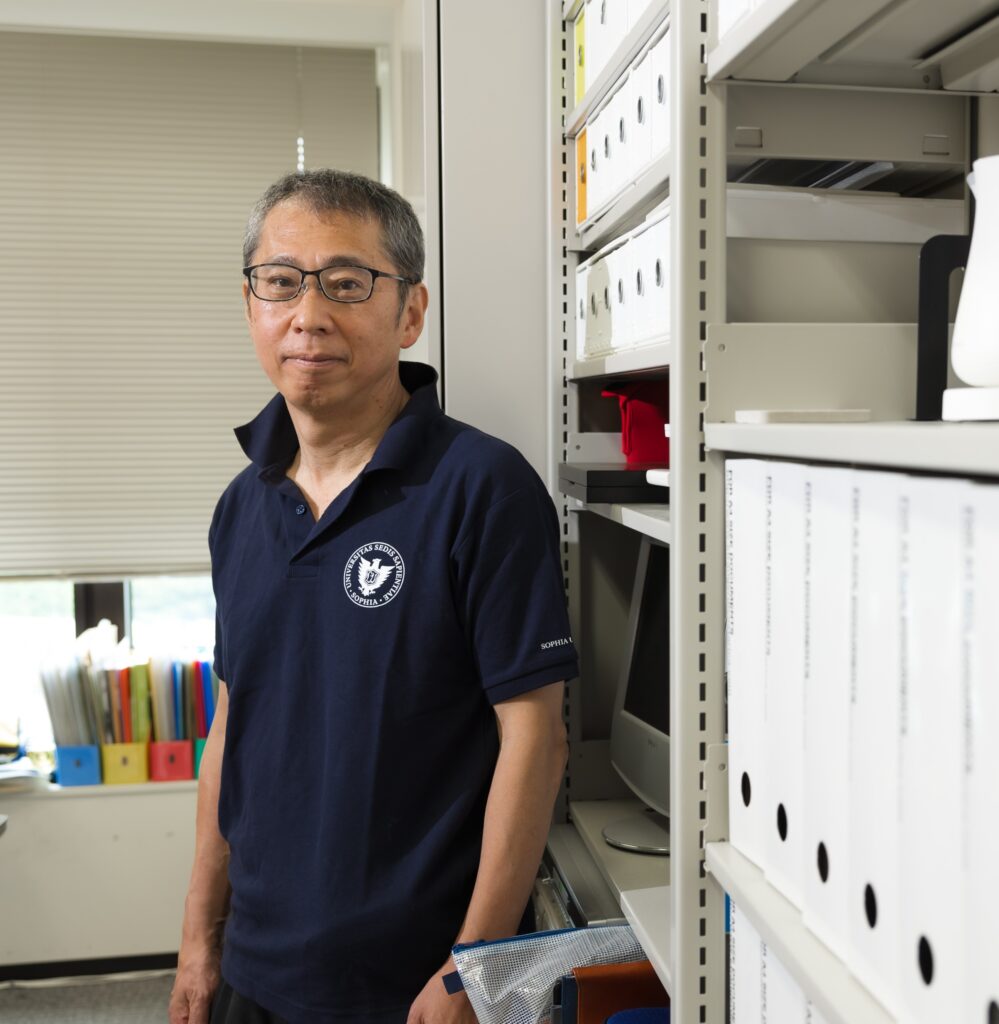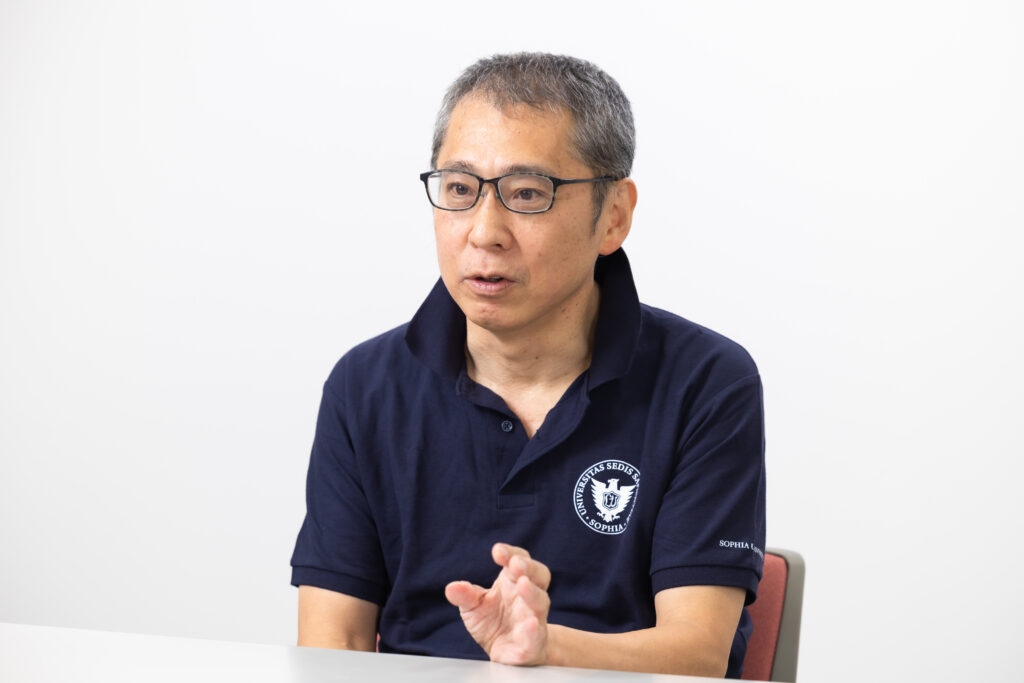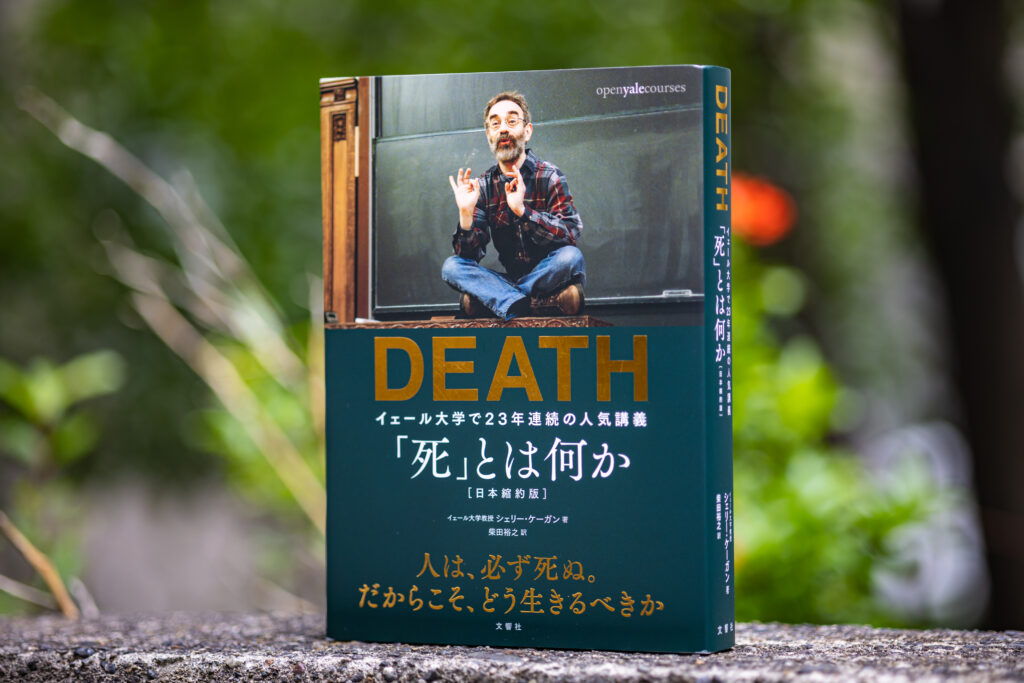
Professor Shogo Asami of the Faculty of Foreign Studies is an expert in bioethics. He talks about bioethics of euthanasia and assisted suicide, his main area of research, and posthumanism and transhumanism, subjects of future research.
My field of expertise is bioethics. Put simply, bioethics seeks answers to the question: what exactly does it mean to value life in various and concrete situations? The birth of this discipline can be traced back to the Second World War, when Nazi Germany carried out inhumane experiments on people, and to the post-war period, when there was increased awareness of patients’ rights. Advances in medical technologies mean that today, a growing number of lives can be saved, and lifespans are lengthening; but some people do not wish to live long lives not being in full control of their bodies, and others argue for society to recognize the right to die. Clearly, discussions about the quality of life have become necessary.
Bioethics is a wide-ranging discipline, and the topic I am presently most interested in is euthanasia and assisted suicide. In principle, both euthanasia—which provides sick people with an escape from suffering—and assisted suicide—which helps people voluntarily end their own lives—are prohibited in Japan. But an increasing number of countries, particularly in Europe, permit these practices, although the precise conditions under which they are permitted varies for numerous reasons, including historical backgrounds, philosophy, and religion.
The German approach to life emphasizes the right of self-determination

It is assumed that assisted suicide has been permitted in Germany since a unified state was established in 1871. In 2015, Germany enacted a law forbidding promotional activities and repeated assistance by assisted-suicide groups; however, in 2020 the Federal Constitutional Court ruled that such limitations were unconstitutional. According to the constitution, personal rights guarantee citizens the right not only to live but also to end their lives. The German constitution assumes that humans are free to make decisions for themselves as they see fit; evidently, it respects its citizens’ right to self-determination.
As for how I carry out my research, for the German approach to self-determination mentioned above, I focused on documents published by the government and the courts. I also read treatises and theses, and at times used my contacts to acquire texts that were only available locally.
I also research end-of-life care in Japan. As part of my investigations, I visited hospices around the country, speaking to patients, doctors, and other healthcare workers, as well as chaplains who provide spiritual care. And I am sometimes invited to give lectures by hospices and other medical institutions.
I also regard discussions with young people as important—this provides a way to understand the thoughts of people in their teens and 20s, who are of a completely different generation to myself. Many of these younger people find life difficult; and some resent being told that suicide is wrong, or that they must continue living at all costs. In my undergraduate classes, I occasionally invite patients with incurable diseases to discuss their thoughts on life, and to debate with my students.
What does it mean to be human? Advances in AI and the birth of cyborgs
I have an interest in the ethics of posthumanism and transhumanism as a future research topic. Advances in artificial intelligence (AI) and robot technologies will very probably lead to fundamental changes in human existence. Artificial organs that function semi-permanently, enhanced brain functions, microorganism-sized nanobots that enter our cells and prevent illness and aging— human existence will change as a result of progress in all manner of medical technologies, and we will have the ability to significantly increase human lifespans. But such advances will also give rise to various questions: artificial organs and nanobots will gather all manner of data about our bodies—who will own and manage this data? What happens to privacy?
In the end, discussions will center on what it means to be human and an individual. I firmly believe that in such discussions, bioethical approaches will be indispensable.
The book I recommend
“Death,”
by Shelly Kagan, Japanese translation by Yasushi Shibata, Bunkyosha

This is a book of a popular lecture series given by Shelly Kagan, an expert in moral philosophy and normative ethics. If approached emotionally, the issue of death tends to lead us round in circles. But Kagan discusses death in a comprehensive and theoretical manner, by asking questions such as “Is death a bad thing?” and “Is immortality desirable?” I recommend this book to anyone who has an interest in bioethics.
-
Shogo Asami
- Professor
Department of German Studies
Faculty of Foreign Studies
- Professor
-
Professor Shogo Asami graduated from Keio University’s Department of Philosophy in the Faculty of Letters; he completed the doctoral program in Philosophy at the Keio University Graduate School of Letters. In 2004, Asami took up a post at the Department of German Studies at the Sophia University Faculty of Foreign Studies, and assumed his current position in 2011. Since 2016, he has worked concurrently as professor of the Doctoral Program in Death and Life Studies, at the Sophia University Graduate School of Applied Religious Studies.
- Department of German Studies
Interviewed: June 2022